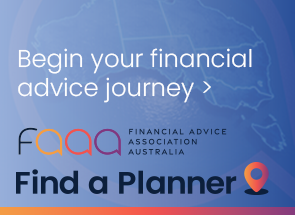For many families, choosing a school isn’t just about education – it’s a long-term financial decision. The choice between public, private, or alternative schooling isn’t just about tuition costs, but also lifestyle, property decisions, and future opportunities for their children.
Parents often weigh up two key options; buying in a top-performing public-school zone or paying private school tuition. Each comes with financial trade-offs that many don’t consider upfront.
The true cost of public schooling
While public education itself doesn’t come with tuition fees, buying into a sought-after school zone can carry a significant financial premium.
In some cases, homes within well-regarded school catchments sell for hundreds of thousands of dollars more than similar homes just outside the zone. That’s the equivalent of several years’ worth of private school fees paid upfront in real estate costs.
For families considering relocating, it’s not just the property price but also:
- Stamp duty costs – A significant upfront cost depending on location and purchase price.
- Moving costs & legal fees – Relocation and transaction costs can quickly add up.
- Mortgage switching costs – Refinancing fees and changes to loan terms may apply.
- Lifestyle considerations – Commute times, community amenities, and suitability beyond the schooling years.
For some, these costs make private school fees a comparable financial decision over time.
Beyond education: who you know matters too
For many families, the decision isn’t just about what their children will learn, but also who they’ll grow up with.
Well-regarded schools often come with strong community networks that extend beyond the classroom. Many parents see these networks as valuable in helping their children:
- Form friendships and future professional connections
- Access mentoring, internships, and career opportunities post-school
- Be part of a like-minded community that supports their development
This factor is one reason why some families justify the financial trade-offs—whether through higher property prices or private school tuition.
What about the parents? The financial trade-offs
It’s easy to focus on the benefits for children, but parents need to consider how these choices impact their own financial future.
Many families make sacrifices to afford schooling, including:
- Delaying other financial goals – A larger mortgage or private school fees can mean less money for investments, holidays, or lifestyle choices.
- Stretching housing budgets – Paying a premium for a home in a school zone may mean buying a smaller property or taking on a bigger loan.
- Impacting retirement planning – Education costs can divert savings from superannuation and long-term wealth-building.
- Limiting lifestyle choices – Some families find they need to cut back on holidays, dining out, or other experiences in order to afford school-related expenses.
While investing in education is important, finding the right balance between giving children opportunities and maintaining financial stability for the whole family is key. Bigger mortgages and longer timelines for paying down debt and building wealth may put some stress on people and their relationships.
Do these homes hold their value?
While high-demand school zones often remain desirable, it’s important to recognise that property values can still be influenced by external factors such as:
- Changes in school reputation—if rankings drop, demand may shift.
- Affordability pressures—as housing becomes more expensive, fewer families may be able to buy in.
- Long-term suitability—if families only stay for schooling, they may sell once their children graduate, creating turnover.
For those planning to stay long-term, buying in these areas may offer stability. However, if the plan is to move later, transaction costs should be considered when assessing overall financial impact.
Rentvesting for schooling: an alternative strategy
Instead of purchasing in a high-demand school zone, some families choose to rent within the school catchment while investing elsewhere. This allows them to access quality public education while keeping financial flexibility.
For example, rather than paying a large property premium upfront, a family could:
- Rent in the school zone for the years they need access.
- Purchase an investment property elsewhere that aligns with their financial goals.
- Retain flexibility instead of locking themselves into a single location.
Making the right choice for your family
There’s no single right answer—it depends on financial goals, lifestyle preferences, and long-term plans. Whether families choose public, private, or a hybrid approach, the key is to consider the full financial impact beyond just tuition fees and ensure it aligns with their broader financial future.
The Money & Life website is operated by the Financial Advice Association (FAAA). The views expressed in this article are those of the author and not those of the FAAA. The FAAA does not endorse or otherwise assume responsibility for any financial product advice which may be contained in the article. Nor does it endorse or assume responsibility for the information.








